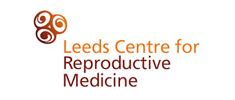After months of planning, on Friday April 15th, 2016 I chaired The Fertility Health Summit: Choice not Chance, a launch event to raise national awareness about the need to improve Sex and Relationship Education for young people.
http://[link]
The summit was led by the Fertility Health Task Force (FHTF), a group of the UK’s most senior professionals from health, education and government. This is led by the British Fertility Society, the Faculty of Sexual and Reproductive Healthcare (FSRH) and the Royal College of Obstetricians and Gynaecologists (RCOG).
Our event was the start of a much larger, three year work programme and included 13 high-level presentations by leading UK and overseas professionals in the field, as well as a representative group of young people. As far as I’m aware it is the first time that such a group has come together to discuss this important subject and I am really grateful to everyone for their contributions on the day.
To set the event in context, I presented the latest national data, which indicates:
• More women in the UK are now having children over the age of 35 than under the age of 25.
• For the first time, over 50% of babies born in the UK are to women over 30.
• Fertility declines progressively through life and many women are choosing to delay trying for a family until their mid- to late thirties, when fertility is more rapidly declining.
• In the UK 20% of women will never have had a child, which is twice the percentage of their mothers’ generation. There are many complex socio and economic reasons for this.
A national survey of 1000 16-24 year olds (male and female) was commissioned specifically for the FHTF. The key findings showed worrying gaps in knowledge about fertility and reproductive health:
• Around 80% of both sexes believe women’s fertility only starts to decline after the age of 35, and a quarter of boys think women’s fertility starts to decline after the age of 40, compared with 16% of girls.
• Two-thirds of those surveyed thought a man’s fertility only starts declining after the age of 40, with a third believing it declined until after 50.
While the decline in fertility is less dramatic for men, fertility rates for both sexes actually decline gradually from the late 20s, and can be affected by genetic and environmental factors such as smoking, obesity and nutrition.
• 94% of those who did not already have them said they would like to have children in the future.
• Of those who said they wanted children in the future, three-quarters of girls (76%) and two-thirds of boys (64%) said they would like to have children before they are 30.
• The vast majority of young people – around 9 in 10 – are aware that women are most fertile under the age of 30
• Encouragingly, 80% of girls and two-thirds of boys (66%) are aware that age is the number one factor which affects female fertility
• Girls tend to consider that a higher number of factors affect their fertility than boys
o Two-thirds of girls are now aware that being overweight or underweight affects fertility
o 40% of girls mistakenly believe that having a miscarriage or being on the contraceptive pill for too long can adversely affect fertility
• Substance abuse (drugs, alcohol, steroids) is perceived to be the main factor affecting male fertility – this does affect fertility but age remains the most common factor
• Around 50% of young people did not recall seeing, hearing or talking about fertility in the past year
I have summarized the key points made by the expert speakers and panelists at the Fertility Health Summit as follows:
The vital issue of fertility health is sadly neglected in the UK.
This is not only unfortunate but remarkable, since people say that having children is the most important decision in their life, and fertility problems are the major health problem/issue experienced by the 25-44 age group, as discussed by Professor Søren Ziebe (Rigshospitalet, Copenhagen).
The sub-title of the Summit: ‘Choice not Chance’ was apt, as pointed out by Professor Lesley Regan, RCOG Vice President for Strategic Development, and she emphasised the ‘need to empower people to understand/know about their fertility’; as opposed to approaching it with despair and resignation, or as expressed by the organisation My Fertility Matters, ‘I can only protect what I value and respect’.
There is an overwhelming desire and need for more information about fertility and reproductive health amongst young people.
Naomi Sheppard, Head of Participation and Volunteering at Brook Youth Educators (www.brook.org.uk/our-work/our-education-programmes), the UK’s leading provider of sexual health services and advice for young people under 25 said it was vital to share such information with young people, a message that was echoed by many young representatives invited to attend the day.
Infertility can be a devastating and tortuous medical and emotional experience.
One female delegate gave a moving account of the ultimately unsuccessful, journey she undertook to overcome her infertility, during which she felt the victim of her own deficiency in knowledge about the basic biology of human reproduction with which to counter the heavy moral arguments she was subjected to.
Professor Judith Stephenson, from the Institute for Women’s Health, University College London, said it was important to consider the various stages couples go through in having a baby, from ‘pre-pre-pregnancy’ (i.e. non-urgent thoughts about conceiving) though ‘pre-pregnancy’ (‘we would like a baby’) to the real attempts to become pregnant.
The Keynote Speech at the Summit was given by Alex Jones, Broadcaster and co-host of BBC’s The One Show who gave an inspirational talk on her personal experience as a woman in her late 30s who is considering her own fertility journey. Alex shared stories of family and friends who had experienced infertility, as well as those she encountered in making a forthcoming BBC TV documentary, ‘The Truth About Fertility’.
Sex, pregnancy and fertility is taboo in the UK.
Professor Joyce Harper, from University College Hospital London IVF and Reproductive Genetics Group and the mother of three boys conceived by IVF, gave a passionate address on the question ‘How can we engage parents, schools and social media?’ Building on her experience in schools and with parents, she said that ‘sex, pregnancy and fertility is taboo in the UK’ She felt that SRE should be taught in primary schools and bemoaned the fact that all school ‘Academies’ in the UK can opt out of providing such lessons. She felt this was especially unfortunate since parents did not have the appropriate experience to deliver the information required.
Academy schools can opt out in the UK and yet SRE is vital for young people.
Lucy Emerson, Co-ordinator of the Sex Education Forum, talked about ‘The opportunity in schools’, which included:
• Listen and respond to the needs of young people
• Deliver appropriate messages from 3-19
• Train teachers in SRE
• Links with local health authorities
• Involving parents and carers
Improvements in education on reproductive health and fertility must continue to include advice to reduce rates of pregnancy amongst 16-18 year olds.
Alison Hadley OBE, Director of the Teenage Pregnancy Knowledge Exchange (based at the University of Bedfordshire), talked about her work to lead a previous UK government’s initiative (1999-2010) to address the high levels of under 18 conception rates; a programme which achieved a reduction of 42% to the lowest level for 40 years. In the context of the Summit, the successful programme led by Alison Hadley was an excellent case study showing what can be achieved when young people are provided/empowered with the information to make informed choices.
Further evidence of the lack of awareness about fertility, the body and health was considered by Dr Abha Maheshwari, Consultant & Honorary Senior Lecturer Reproductive Medicine, Aberdeen Royal Infirmary. She said it was unfortunate that while women were delaying childbearing, younger mothers also risked being stigmatised for becoming pregnant too early. Abha’s work also highlighted a startling lack of SRE in the undergraduate medical curriculum.
Fourth year medical student and a director at youth organization, Sexpression, Jennifer Dhingra, described a different but important approach to empowering young people to make decisions about sex and relationships. Sexpression is student led with about 700 volunteers across 25 UK universities. It runs informal but comprehensive sex and relationship interactive sessions in schools and clubs on topics such as sexually transmitted infections, contraception, consent and sexuality. The sessions have ground rules and are interactive but are confidential and include the facility for anonymous questions to be posed via a ‘suggestion box’.
Two leading experts on fertility education from overseas countries were invited to address the conference to share their experiences of building a national programme.
Professor Søren Ziebe’s showed that Denmark is well ahead of the UK in the provision of SRE at all levels. With South Sweden, it has an impressive fertility assessment and counselling service; there are Fertility Ambassadors (mainly sports people) and the slogan ‘From treating childlessness to building families’. Professor Ziebe emphasised that these initiatives operated against the background of a falling birth rate in Denmark. Couples are urged not to delay childbearing and 9% of babies are conceived through IVF, compared with 3% in the UK. Professor Ziebe runs a popular fertility assessment and counselling clinic, which enables couples to get accurate information about their potential for having children. He also described a number of innovative ways in which public health messages have been given out in Denmark, with poster campaigns, prime time television programming and the use of campaigns that emphasize to men the positive aspects of fatherhood.
The last speaker at the meeting was Dr Elisabeth Raith-Paula President of the Association, My Fertility Matters (MFM) in Germany. (www.mfmprojectuk.org). An award-winning sex education programme, MFM provides fertility education for almost 40,000 young people every year and is now being rolled out in other European countries. The popularity of the programme is due to innovative teaching sessions, which are tailored to each age group, including parents.
The summit concluded with a panel discussion and debate amongst an esteemed panel of experts, expertly chaired by Professor Regan. While different shades of opinion were obviously expressed, there was agreement that the meeting had been a great success in highlighting the central aim: ‘to ensure that young people have a greater understanding and awareness of fertility and reproductive health so they can make an informed choice about their fertility journey.
I’d like to thank all my colleagues on the Fertility Health Task Force for their contributions to what can only be described as a hugely successful event to mark the start of an exciting, albeit challenging, programme to improve knowledge of fertility and reproductive health amongst young people in the UK.
I am grateful to Dr Jane Stewart for taking photographs at the event and Professor Henry Leese, who took notes during the summit and wrote a summary for me.













